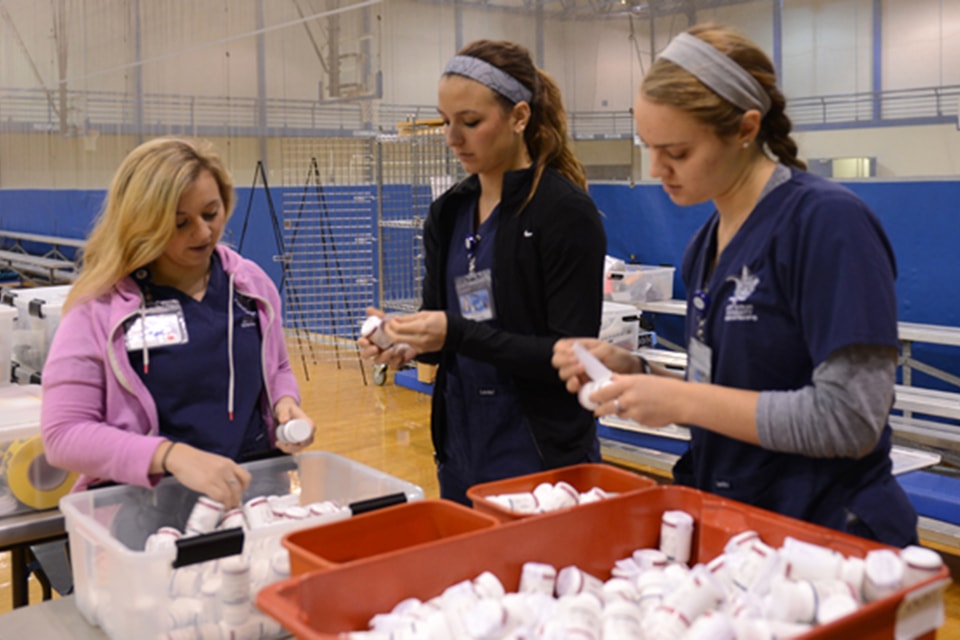Volunteers Sought for Anthrax Drill
Volunteers are needed for a simulation at Simon Recreation Center on Monday, Oct. 10, that tests SLU’s ability to dispense life-saving medication to members of the University community in case of a biological attack, such as anthrax exposure.
Students, faculty and staff are sought to work various shifts from 8 a.m. to noon, serving as check-in staff, forms collectors, medication dispensers, inventory staff, runners, line monitors and mock patients. All will receive the training they need to do their jobs.
For more than three years, faculty, staff and students from areas that include public health, nursing, public safety and human resources have worked with the St. Louis Department of Health on the emergency-planning initiative.
The city is partnering with large employers, such as SLU, to form Closed Point of Dispensing (POD) programs to distribute life-saving medication from the nation’s Strategic National Stockpile to their own constituents. In case of a major biological attack, the city will operate its own Open POD clinics in schools and other venues to provide medicine to those who can’t get it through a Closed POD.
Vitality points will be given to SLU employees who participate in the simulation. In addition, students will have an opportunity to learn about emergency practices as they gain hands-on experience during a disaster drill.
“Our drill will see if our logistics work to provide students, faculty and staff and their families with life-saving medications on our campus, in case there is a biological attack. We’ll need the help of nearly 300 volunteers to be successful in our simulation,” said David Reddick, a SLU IT governance analyst and one of three SLU employees who is guiding the project.
Deborah Artman, an instructor in the School of Nursing, teaches students there to dispense medications as part of the Closed POD program.
“Our efforts could save members of the SLU family hours of having to wait in a public line to get drugs they would need to survive a biological attack and will help our local health department better distribute medication in a timely way. This could be critical,” she said.
Lillie Jackson, safety coordinator for the University and another leader of the program, agreed.
“A major benefit of Saint Louis University being a Closed POD is that it allows for all employees to get medications for their families. As an employee who has to work during an emergency, knowing that my family will be treated while I return to work to handle my responsibilities reduces a lot of stress,” she said.


















